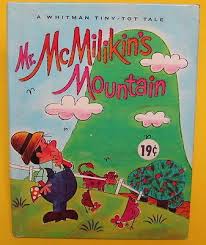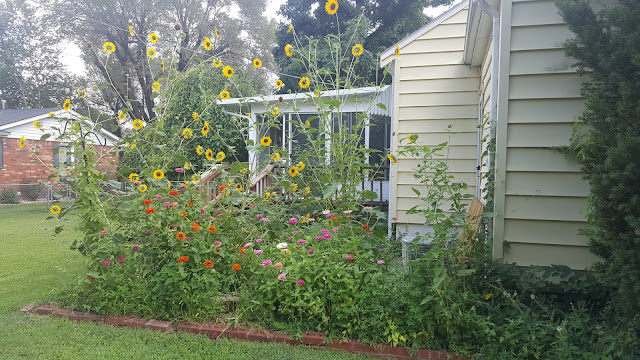I want to thank Brett Kavanaugh and Donald Trump for my new lewk.
What do you think?
I think the lack of eyeliner and mascara really highlights how tired I am of men* who blame and
even make fun of women who are victims of sexual assault, while the absence of foundation does a nice job of emphasizing the frustration with men* who continue to blithely ignore what women are actually saying and instead choose to critique their tone of voice as "
shrieking." The thin, pursed lips perfectly express my feelings about men* who are so determined to adjudicate the merits of a particular case that they don't realize or don't care that their comments--thoughtless at best, frequently hateful, and always ignorant--are
repeatedly traumatizing the women around them.
All the best beauty looks start with an inspiration, and I was inspired by being late to work. Normally my morning routine is on point, scheduled down to the minute to have me walking into work five minutes before my shift starts. But one day a couple of weeks ago, I lost track of time reading about Christine Blasey Ford. I had 10 minutes to finish a 20-minute "beauty" routine, half of which is simply smearing my face with foundation and my lashes with mascara. And it was about to make me late.
All at once, the whole process became ridiculous.
Why do I even wear makeup? Who cares if my skin tone isn't even and random strangers can see a blackhead or a zit? Who tells me that I should never, ever appear in public without my liquid face mask lest people in general and men in particular find me unattractive?
The culture that gives us Brett Kavanaughs and Donald Trumps, that's who.
The horrific
culture of violence women are expected to navigate as a matter of course.
The culture in which one in five women are raped.
The culture in which almost
one in two multiracial and indigenous women are raped.
The culture in which between 95% and 98% of rape reports are truthful.
And I haven't even gotten to sexual assault and harassment that doesn't end in rape, which is barely even acknowledged, let alone punished.
Fuck that culture. Why am I spending so much time changing my appearance so that
that culture will find me acceptable?
I haven't worn makeup since that day two weeks ago.
*****
Now, look, I'm not saying all women should immediately stop wearing makeup. I would no more tell a woman what she can and cannot put on her face than I would tell her what tattoos she's allowed to get or what clothes she should wear.
This post is about me, not you. If you want to keep wearing makeup, if
makeup makes you happy, if makeup makes your day easier instead of
harder, I am not here to tell you you're wrong.
I'm not even saying that
I will never wear makeup again. It's not like I have any plans to throw out a $30 bottle of foundation. That's good stuff, and I'm going to want it the next time I go to a party or a wedding or somewhere I want to feel a little extra fancy, or maybe just next week if I feel like it.
*****
So, no, I am not saying all women should immediately throw out their lipsticks.
I am saying this: In the two weeks I've been makeup free, my confidence in my appearance has soared. It almost feels miraculous, like a superhero origin story.
In the last month, women have had to watch while every conservative man* from Donald Trump to that guy we turned down for a date that time pilloried Christine Blasey Ford for no reason except that she had the the gall to report her abuse. We had to watch while Dr. Ford went through what
every woman who
reports abuse experiences, except Dr. Ford had to do it in front of the international media. We had to relive our own worst moments while the men* around us debated our believability, our reliability as witnesses to our own lives, our motivations, even whether we're "pretty enough" to be assaulted. Even when they were told how hurtful they were being, how their obsession with the technicalities and legalities entirely misses the point, how they are in
no way qualified to pronounce judgment on a case they know nothing about, they would not. shut. up.
So I don't know about you, but I definitely feel like a supervillain threw me into a tank of
experimental chemicals. I almost drowned, but when I
finally pulled myself out, soggy and exhausted, I had amazing new powers
of perception. I can see now that I've been participating in "beauty culture"
in a thoughtless, externally determined way that was designed to make this culture comfortable at the same time that it made me
anxious and self-loathing. Beauty culture in that context is the polite
veneer of rape culture--or what I'm going to call from now on "Kavanaugh
culture."
Trying to change myself to meet the expectations of a culture that wants to hurt me with
impunity and gets grumpy when I object is simply no longer possible.
My personal decision not to wear makeup as often is entirely insignificant. It's so silly
and superficial that I've almost deleted this post as too dumb and unimportant at least a
dozen times. Yet I've spent thirty years drowning in a metaphorical vat of poisonous chemicals, in a culture that wants me to believe that my natural skin isn't good enough, that I'm inherently disgusting and need to change myself not because I really want to but because I owe it to the world, because without makeup, I'm not "likable" enough.
I'm not
rapable enough.
It doesn't get more serious or important than that.
Without makeup, I can feel myself standing up straighter, smiling more often. Those blackheads and zits and scars are all still there, and some little wrinkles are starting to crop up around my eyes. But somehow, this week, to quote Saint Thelma, something's crossed over in me. I can't go back.
And, damn, I look stunning.
--
A Brett Kavanaugh Reading List
"Looking Back," Ursula LeGuin
Remember me before I was a heap of salt,
the laughing child who seldom did
as she was told or came when she was called,
the merry girl who became Lot's bride
the happy woman who loved her wicked city.
Do not remember me with pity.
I saw you plodding on ahead
into the desert of your pitiless faith.
Those springs are dry, that earth is dead.
I looked back, not forward, into death.
Forgiving rains dissolve me, and I come
still disobedient, still happy, home.
Victoria Bissell Brown, "Thanks for Not Raping Us, All You 'Good Men.' But It's Not Enough." Washington Post, October 12, 2018.
Kimberlé Crenshaw, "Opinion: We Still Haven't Learned from Anita Hill's Testimony," New York Times, September 27, 2018.
Kate Harding, "A Master Class in Women's Rage," Medium, September 27, 2018.
Lacy M. Johnson, "On Likability," Tin House, October 11, 2018.
Sarah Kendzior, "Opinion: Kavanaugh's Appointment Isn't a Step Backward. It's a Head-First Plunge into an Ugly Past," Globe and Mail, October 6, 2018.
Kristen Zory King, "For Women, the Sin of Indulgence Is the Worst Sin Imaginable," Medium, October 2, 2018.
"Nobel Prize for Anti-Rape Activists Nadia Murad and Denis Mukwege," BBC, October 5, 2018.
Rebecca Traister, "Opinion: Fury is a Political Weapon. And Women Need to Wield It," New York Times, September 29, 2018.
--
*Yes, I know there are women out there who support Kavanaugh and Trump. I don't understand you and I worry for you.
--
During the week I was writing this, this popped up in my Facebook feed. So apparently it's women's fault that men are too stupid to tell when we're wearing makeup.






